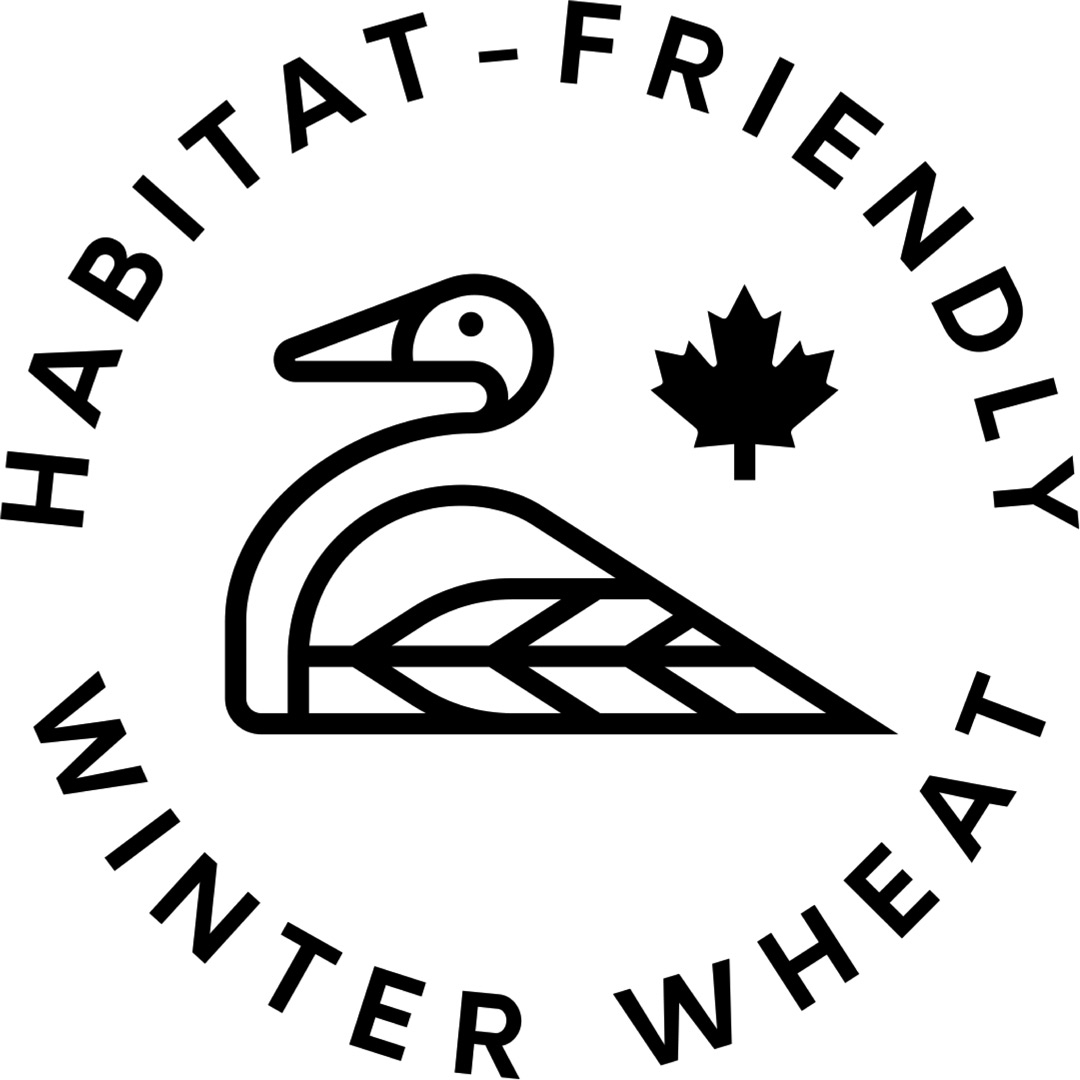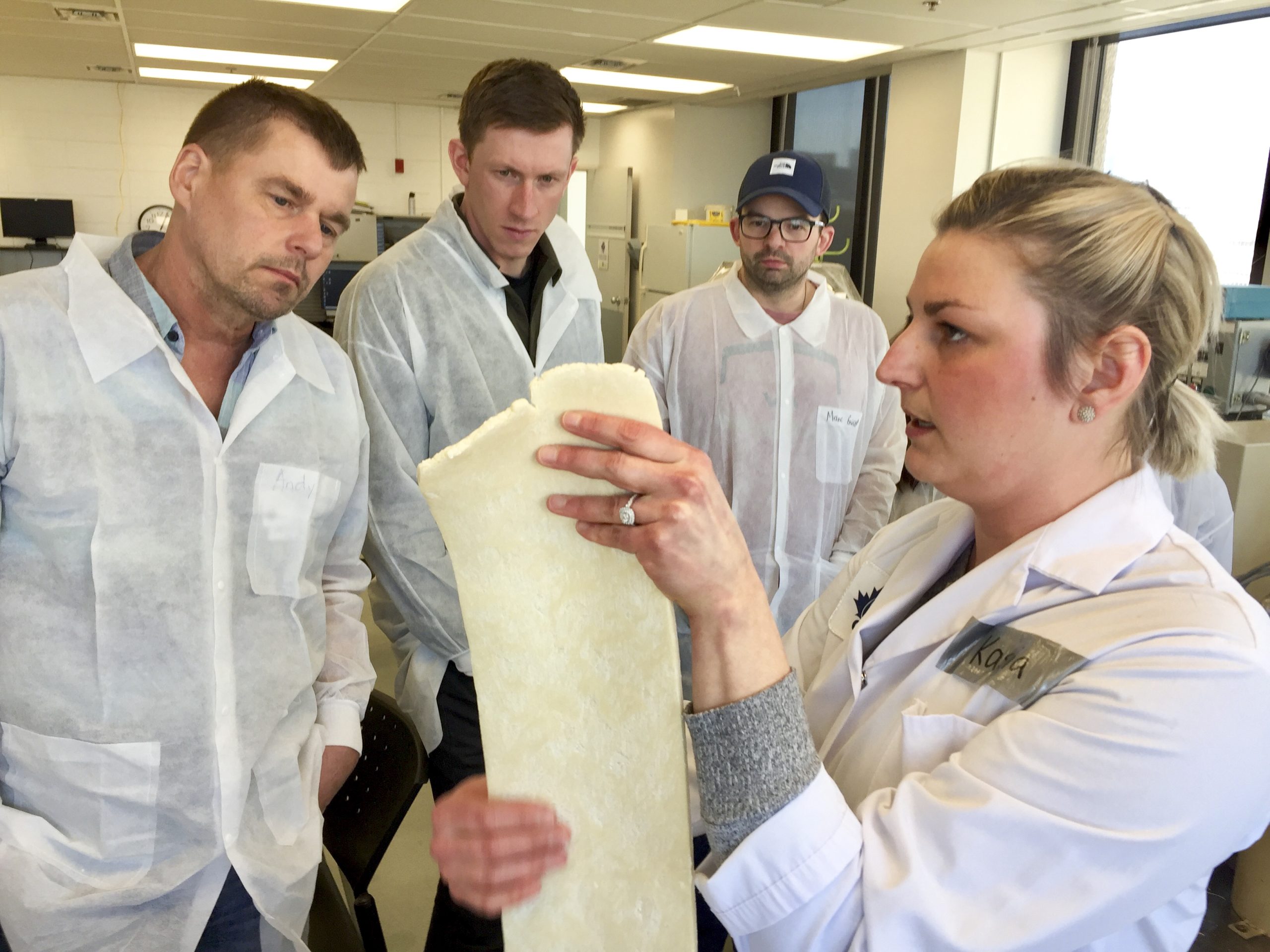WINTER WHEAT MAKES ITS MARK
BY NOELLE CHORNEY
To be launched in November, the Habitat-Friendly Winter Wheat Ecolabel will create new opportunities for farmers and generate buzz among consumers about the environmental benefits of Canadian agriculture. This initiative is the product of collaboration driven by Cereals Canada and partners such as the Alberta Wheat Commission as well as additional crop groups, end-users and Ducks Unlimited Canada.
The Ecolabel has the potential to strengthen demand for western Canadian winter wheat, raise consumer awareness of the ecological benefits of the crop and meet growing demand for sustainable products. According to consumer research undertaken by Cereals Canada in 2019, when given a choice between two similar wheat products, one in three Canadian consumers would choose the product with the Ecolabel.
Research has identified the benefits of winter wheat crops to grassland songbird and waterfowl on the Prairies as they supply habitat that otherwise wouldn’t be available. Because winter wheat crops are seeded in the fall, fields are left undisturbed in the spring, which creates nesting areas and stopovers for migrating birds.
Growing winter wheat also helps farmers, particularly in dry growing regions. Gary Stanford, who farms with his sons near Magrath in southern Alberta, said he wants winter wheat in his crop rotation to take advantage of moisture from melting snow in the spring. “Farmers want to grow winter wheat, but until now there hasn’t been much of a market for it,” said Stanford. “This Ecolabel will help with that. It’s a win for farmers, for sustainability and for conservation organizations.
We already have several millers interested in locally available winter wheat.”
The Ecolabel potentially allows farmers and farm organizations to change the narrative around food production. “Modern agriculture is already doing many things right related to ecology, but we have struggled to tell that story to consumers,” said Geoff Backman, Alberta Wheat Commission manager of market development. “This Ecolabel is a way to educate consumers on the benefits that farmers of winter wheat are already providing. By developing this label, we plan to increase domestic consumer demand for high-value winter wheat-based products. Increased consumer demand means demand from farmers for more winter wheat and better prices for farmers.”
Farmers do not need to apply to benefit from the program; they can simply grow varieties in the Canada Western Red Winter class and sell them to participating grain handlers or end-users. To bolster the program’s credibility, the Ecolabel project partners will encourage the adoption of voluntary best practices in crop production, such as the Responsible Grain code of practice being developed by the Canadian Roundtable for Sustainable Crops.
Since the launch, members of the project’s working group transitioned to a governance and advisory committee that will continue to oversee applications and audits.
Among the first end-users to take a certified product to market will be Beam Suntory, a global leader in the spirits and beverage industry. Beam Suntory’s subsidiary, Alberta Distillers, makes the Northern Keep brand of vodka, which is made with 30 per cent certified habitat-friendly winter wheat.
“We are proud to source from local winter wheat farmers to produce the Northern Keep product line,” said Nicholas Winters, supply chain manager for Beam Suntory. Our participation in this Ecolabel program enables us to meet growing consumer demand for sustainable products by communicating the positive environmental benefits that are inherent in western Canadian winter wheat.”
Daniel Ramage, Cereals Canada director of market access and trade policy, is excited the program benefits farmers, manufacturers, consumers and wildlife. “This program was designed to unlock shared value for our partners while conveying the positive impact western Canadian winter wheat has on the protection of wildlife habitat on the Prairies. With more and more customers looking for sustainability outcomes, we can capitalize on new opportunities to tell the positive story of Canadian agriculture.”
For more information, visit habitatwheat.ca.







Comments